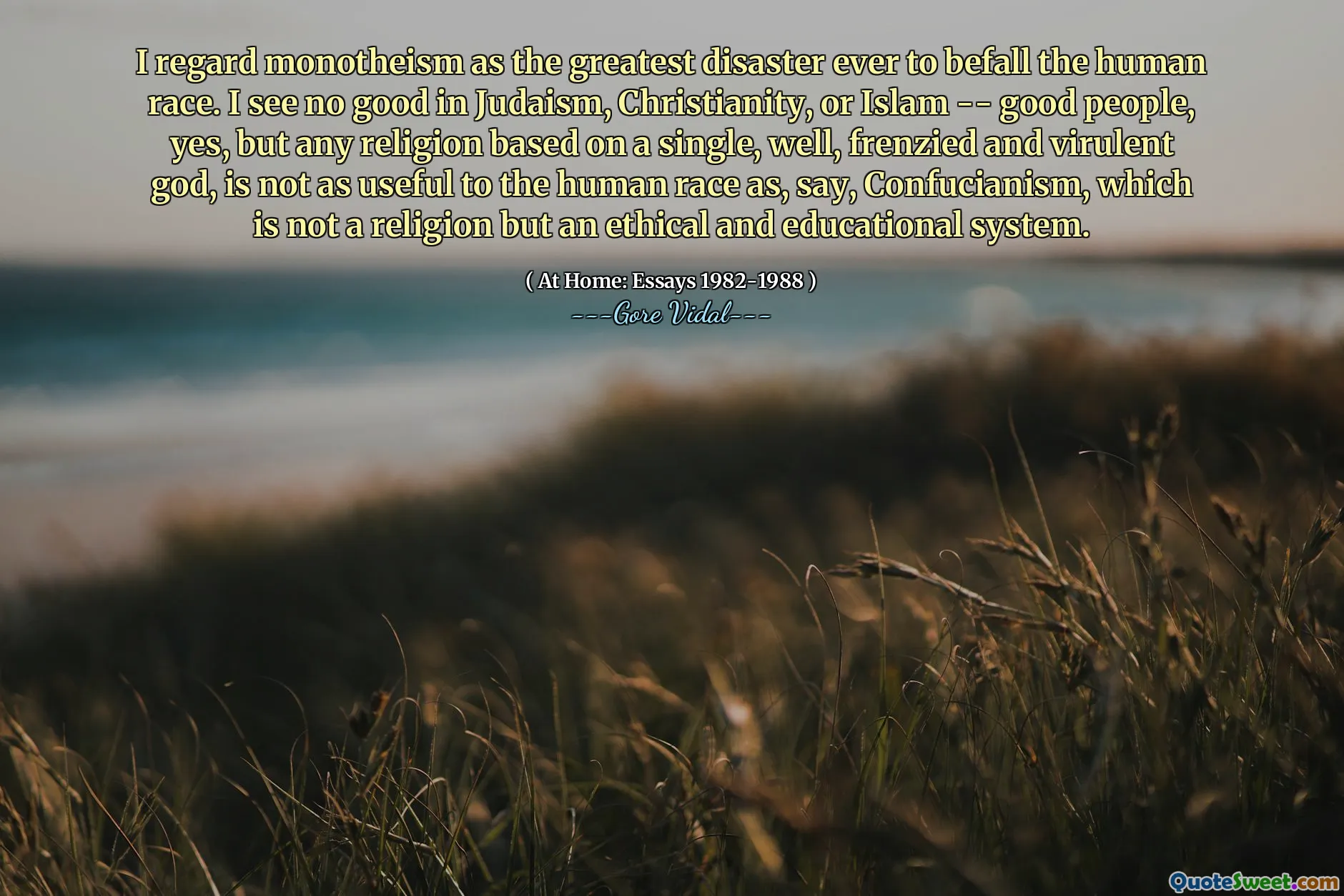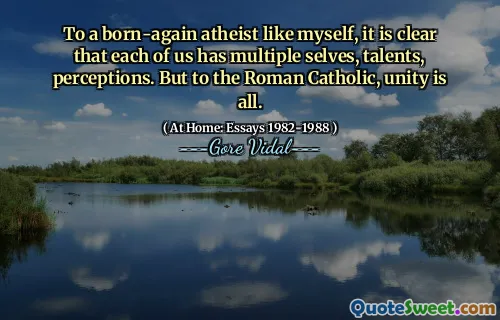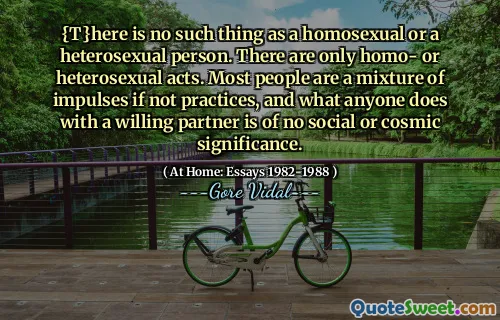
I regard monotheism as the greatest disaster ever to befall the human race. I see no good in Judaism, Christianity, or Islam -- good people, yes, but any religion based on a single, well, frenzied and virulent god, is not as useful to the human race as, say, Confucianism, which is not a religion but an ethical and educational system.
In his collection of essays "At Home: Essays 1982-1988," Gore Vidal expresses a critical view of monotheistic religions, specifically Judaism, Christianity, and Islam. He regards these faiths, which worship a singular, often intense deity, as detrimental to humanity. Vidal suggests that while individuals within these religions can be good people, the foundational structure of monotheism does not contribute positively to society.
Instead, Vidal contrasts monotheism with Confucianism, which he perceives as a beneficial ethical and educational framework rather than a traditional religion. He argues that a system focused on ethical principles, rather than devotion to a singular powerful god, holds more value for the advancement of human beings. This perspective emphasizes his belief in the necessity for alternative philosophical systems that can promote human flourishing without the fervor associated with monotheistic faiths.


